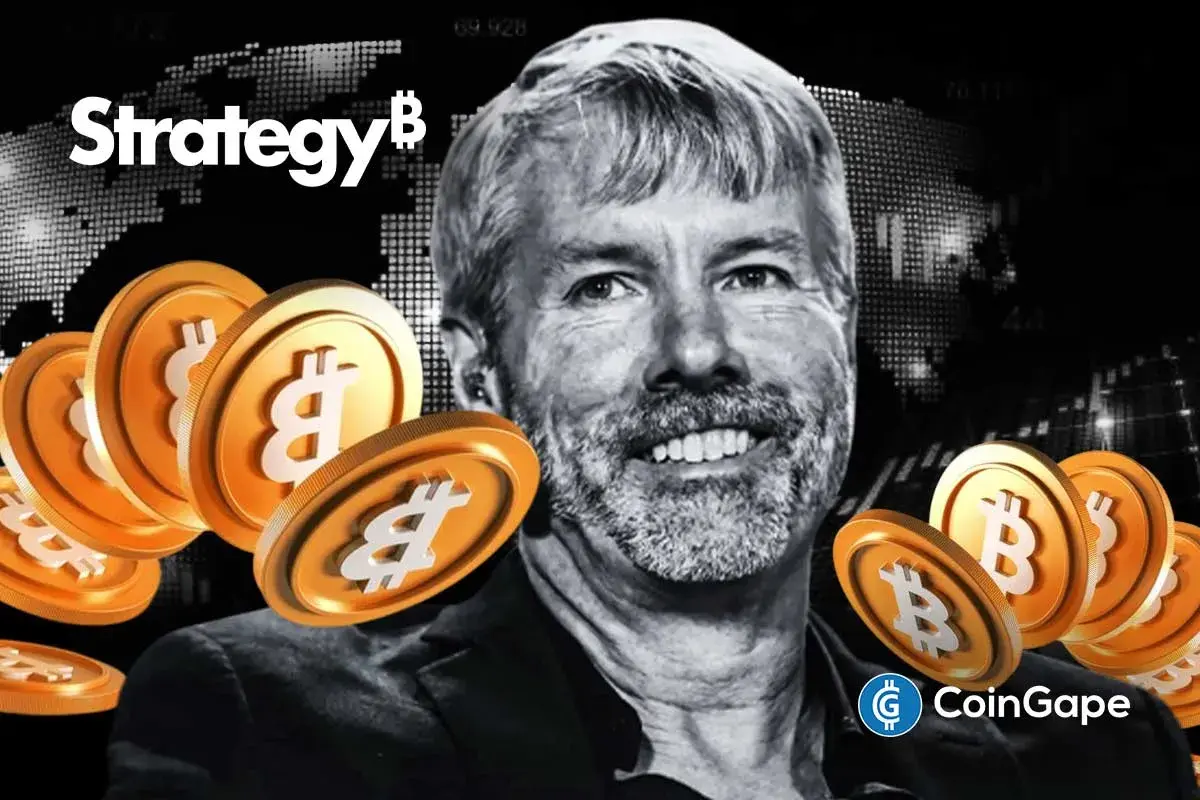Adam Back Reveals The Next Steps For Bitcoin Following Institutional Adoption

Highlights
- Adam Back believes that growing institutional interest is crucial for Bitcoin's resilience and future success.
- Back emphasizes the importance of Layer 2 technologies like the Lightning Network to enhance Bitcoin's scalability .
- He notes that many of the early risks associated with Bitcoin have diminished as the cryptocurrency has matured.
Adam Back, co-founder and CEO of Blockstream and inventor of Hashcash, says institutional adoption is strong and adding to the resilience of Bitcoin.
Recently, he shared that Bitcoin is now “sufficiently bootstrapped” from the strong institutional interest, particularly with the recent launch of US spot Bitcoin ETFs.
Adam Back Explains Key Areas for Bitcoin’s Future Development
Adam Back, famous British cypherpunk and cryptographer, recently identified a few key areas for Bitcoin’s future development. He says that Bitcoin adoption by a number of parties, big enough to be a whole country, does build interest. He points out that nowadays some sovereign wealth funds and countries are starting to invest in Bitcoin products and instruments.
Back emphasized the importance of increased institutional adoption. He noted that Bitcoin’s resilience and strong foundation have been strengthened by institutional support and the recent approval of US spot Bitcoin ETFs. Back believes Bitcoin is now “bootstrapped sufficiently,” as financial and sovereign entities are becoming allies, which reduces previous regulatory risks.
He stated:
“Now the ETFs mean that the issuing financial institutions are interested in expanding and keeping those products in the market. So the banking or financial institutional lobby now wants that to be there.”
Adam Back also sees the expansion of L2 solutions, such as Lightning and Liquid network, as crucial for Bitcoin’s future. He especially emhasizes enhancing retail payments and enabling complex financial transactions. Back highlights advancements in the Lightning Network and its crossover with Liquid. He focuses mostly to improving retail payment scalability and exploring use cases involving stablecoins and trustless trading.
Furthermore, his company Blockstream is focusing on innovative financial products. That means also launching more Bitcoin-based securities and financial instruments on Liquid. This initiative includes offerings like promissory notes and tokenized shares, such as MicroStrategy stock. These are especially, appealing to investors who are seeking alternative trading options unavailable in traditional markets.
Bitcoin “Bootstrapping” Past Early Risks
Back then, an early developer of Bitcoin was the first person to whom Satoshi Nakamoto, the pseudonymous creator of Bitcoin, sent an email. Indeed, his invention, Hashcash, was the first ever proof-of-work system to prevent email spam and denial-of-service attacks using a hash function.
His comments came shortly after the crypto community celebrated the 16th anniversary of the Bitcoin whitepaper on October 31, when Nakamoto first shared the foundational technical document with a group of cryptographers, including Back.
Speaking about the maturity of Bitcoin, Back said that a lot of the early risks of the cryptocurrency have dissipated. Early risks that seemed apparent, for instance, that major countries or economic zones might ban the use of Europe, China, and the US, for example, huge perceived regulatory risk. He, however, thinks Bitcoin is large enough now.
According to him, Bitcoin’s technological risks have dissipated to a large degree. Back admitted that the network is still “fertile ground” for new inventions. Among the unresolved issues, he named the question of scaling blockchains. More importantly, there was still “room for better solutions on this front,” Back said. In his opinion, the Lightning Network has become reliable enough to work for point-of-sale transactions and at least for most peer-to-peer settlements.
Demonstrating the growing security of the network, Bitcoin’s hash rate recently set a new all-time high on October 21, reaching 769.8 exahashes per second; the hash rate serves as a measure of Bitcoin’s cybersecurity.
- Arizona Advances Bitcoin, XRP Reserve Bill Using Seized Crypto Assets
- Bitcoin ETF Update: BlackRock Signals BTC Sell-Off as Kevin O’Leary Warns of Decline In Institutional Demand
- Breaking: Tom Lee’s BitMine Buys 45,759 ETH as CryptoQuant Flags Potential Bottom For Ethereum
- Breaking: U.S. CFTC Moves To Defend Polymarket, Kalshi From Regulatory Crackdown By State Regulators
- Breaking: Michael Saylor’s Strategy Adds 2,486 BTC Amid Institutional Concerns Over Quantum Threat To Bitcoin
- Pi Network Price Beats Bitcoin, Ethereum, XRP as Upgrades and Potential CEX Listing Fuels Demand
- 5 Things Dogecoin Price Needs to Hit $0.20 in Feb 2026
- Bitcoin Price Prediction as Experts Warns of Quantum Risks
- Dogecoin, Shiba Inu, Pepe Coin Price Predictions As BTC Crashes Below $68k
- Ethereum Price Outlook as Harvard Shifts Focus from Bitcoin to ETH ETF
- HOOD and COIN Stock Price Forecast as Expert Predicts Bitcoin Price Crash to $10k


















